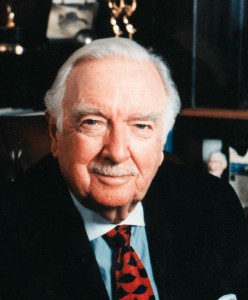“At a time when the government’s Digital Britain report has argued that the licence fee should be ‘top-sliced’ and shared with the BBC’s competitors, the corporation finds itself unusually short of friends and increasingly vulnerable,” George Eaton wrote on NewStatesman.com at the beginning of September, following James Murdoch’s attack on the BBC in Edinburgh.
Furthermore, ‘with a Tory party increasingly sceptical of the BBC’s size and scale on the brink of power, the corporation faces the threat of a powerful alliance between Cameron’s Conservatives and Murdoch’s News Corporation,’ he suggested.
But it’s not just the Conservatives it needs to worry about: yesterday the corporation found itself attacked again – this time by the culture secretary (and former BBC reporter) Ben Bradshaw (speech in full at this list) who said the BBC has probably reached its size limit, the licence fee could be reduced, and that the trust model might not be ‘sustainable’.
The chairman of the BBC Trust, Sir Michael Lyons is defensive of the BBC (a position criticised by Bradshaw last night: ‘I know of no other area of public life where (…) the same body is both regulator and cheerleader’) and wants to speak directly to the licence fee payers.
Last week, for example, the chairman chose to issue an ‘open letter’ (or as MediaGuardian accurately pointed out, a press release) on the BBC website with evidence of licence fee payer support for the corporation.
Asked on the BBC Radio 4 Today programme this morning why he bypassed the government with this statement, he said:
“Well how else do I communicate with the people that I am charged by the charter with representing? I am not charged with obeying ministers, I am charged with protecting the independence of the BBC and representing the licence fee payer.”
The chairman issued this statement this morning, defending the Trust:
“The next Charter Review [of the Trust] is many years down the line [2017] and we should be judged on our performance then. In the meantime, we have been set up to be, as the then secretary of state put it in 2006, ‘the voice, eyes and ears of licence fee payers’.
“That means reshaping the BBC; defending its strength and independence; and also protecting the investment licence fee payers have made, and if that means upsetting a minister along the way, it is unfortunate but so be it.”
 America has lost a top celebrity anchorman, whose news delivery was so influential, he came to be called ‘the most trusted man in America’.
America has lost a top celebrity anchorman, whose news delivery was so influential, he came to be called ‘the most trusted man in America’.